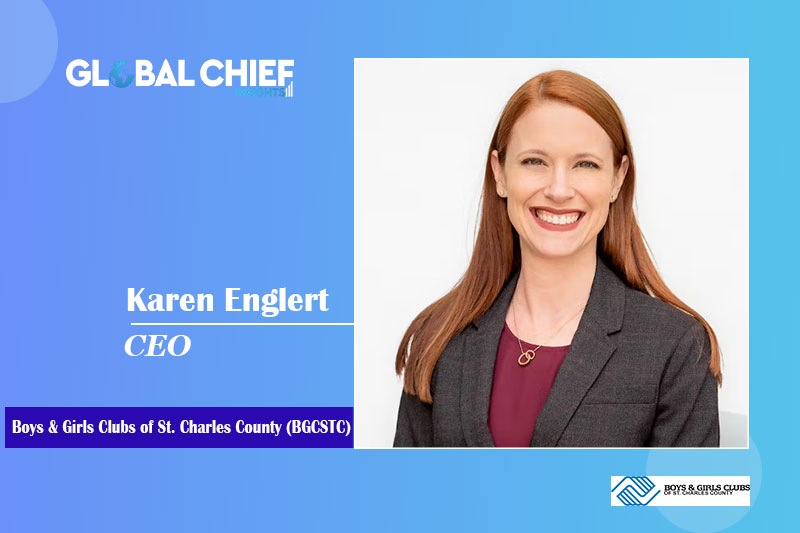LXT: Empowering Intelligent Technology through Global AI Training Data


Driving Data Generation and Enhancement for the Technologies of Tomorrow!
The global economy is currently in a phase of rapid technological advancement, with AI and robotics playing significant roles. While we may see the impact AI will have on society in the future, we are already seeing some of its benefits.
One platform is revolutionizing training data for intelligent solutions. LXT, led by Founder and CEO Mohammed Omar, has built a tool that harnesses the “Wisdom of the crowd” to create rich, multilingual datasets for advanced AI training.
With a network of hundreds of thousands of contributors all over the globe, LXT has become a trusted partner for global brands seeking high-quality training data. The company gathers and enhances data, and delivers it rapidly, at scale, with quality guaranteed—all tailored to the needs of enterprise-level projects.
Its global expertise extends across 115 countries and encompasses over 780 language locales. Since its founding in 2010, the company has positioned itself as a frontrunner in the industry, with headquarters in Toronto. Its North American presence stretches from California’s Silicon Valley to Virginia, and it’s also been building up its presence in the UK, Europe, Australia, and Asia Pacific. Its customers are spread out across North America, Europe, Asia Pacific, and the Middle East.
Under his guidance, LXT is shaping the future of intelligent technology. With a relentless focus on data generation and enhancement, the company plays a vital role in enabling AI-driven solutions to understand and interact with diverse languages, cultures, and modalities.
Let us delve deeper into their remarkable journey!
Harnessing artificial intelligence (AI) data services to drive innovation.
Audio Annotation
Audio annotation is a form of data labeling that encompasses the categorization of sounds, encompassing human, musical, animal, or environmental elements. This type of data annotation is crucial for constructing precise natural language processing (NLP) models for various speech-oriented solutions, such as automated speech recognition (ASR), chatbots, digital assistants, and in-car systems. As customer expectations regarding the promptness and excellence of customer service, as well as interaction with voice AI devices, continue to rise, the quality of the data employed in training Conversational AI has correspondingly gained heightened significance.
Utilizing LXT, you can expeditiously construct a dependable data conduit to fuel your Natural Language Processing (NLP) and Conversational AI solutions, allowing you to dedicate your time to forging the technologies of tomorrow. The amalgamation of their annotation platform, overseen crowd, and quality methodologies bestows upon you the requisite high-caliber data, enabling the construction of more precise AI solutions and expediting your time to market. Each client engagement is tailored to meet the demands of your specific use case, and the quality assurance guarantee ensures that clients receive training data that not only meets but surpasses their quality expectations.
Data Annotation
Artificial Intelligence (AI) solutions necessitate substantial quantities of high-caliber data to yield precise prognostications and effectively engage with end users. Over 80% of all data comprises unstructured information, thereby rendering it incomprehensible and unusable by AI systems. Data annotation services, or data labeling, furnish the requisite framework that enables the AI system to decode and exploit the data for accurate prognostications, problem-solving, and beyond. According to Statista, the global creation of data is projected to surge to over 180 zettabytes by 2025. In light of this exponential expansion and the concomitant shifts in behavior, the machine learning models empowering your AI solutions may necessitate weekly or even daily recalibration.
Teams constructing AI solutions require a robust data pipeline comprising top-notch, human-annotated data that precisely captures contemporary trends in human behavior. Leveraging more than ten years of experience collaborating with prominent global pioneers to bolster or expand their AI endeavors, LXT possesses the expertise to devise a tailor-made data annotation program that caters to a broad spectrum of use cases.
From formulating the AI data annotation methodology to supplying top-tier data, their comprehensive solutions guarantee that clients obtain training data that complies with existing legal and regulatory benchmarks. LXT offers annotation services encompassing various data formats, including audio, image, speech, text, and video. Moreover, they operate across multiple annotation modes, be it their proprietary platform, the client’s platform, or within their secure facilities. The quality assurance guarantee ensures that their clients receive training data that meets or surpasses their quality standards.
Search Relevance
Social media platforms and search engine users have high expectations for quick and pertinent outcomes. The machine learning models that drive these solutions require substantial amounts of superior training data, consistently updated, to meet customer experience demands. Additionally, if you aim to reach a worldwide audience, your ML models must incorporate input from local users to ensure the reflection of cultural subtleties.
Search relevance services aid in refining search results, providing more personalized experiences, leading to increased conversions and heightened user engagement. LXT enables the swift creation of a dependable data pipeline to fuel your eCommerce site search, web search, and social media platforms. Their crowd-managed annotation platform and quality methodologies synergistically deliver the top-notch data necessary for building accurate AI solutions and expediting your time to market. Each client engagement is customized to cater to the specific requirements of your particular use case.
Transcription Services
Transcription serves the purpose of training and validating algorithms, depending on the nature of the solution being developed. For instance, speech recognition algorithms utilized by voice assistants and customer service chatbots are trained using recorded speech and the corresponding transcriptions. Similarly, transcribed text from videos can be employed to enhance video captioning and search engine results.
Although transcription automation technologies are available, human involvement remains crucial to ensure high accuracy and inclusivity, mitigate bias, and handle complex scenarios like audio with excessive background noise or low-resource languages. To guarantee superior accuracy in new markets, companies require expedited access to a sizable pool of native speakers proficient in the target languages.
With LXT, you can swiftly establish a dependable data pipeline and allocate your resources toward developing innovative automated speech recognition (ASR) and speech-to-text solutions, voice assistants, chatbots, and more. By leveraging their platform, managed crowd, and quality methodologies, you can acquire high-quality data essential for constructing more precise AI solutions and expediting your time to market.
Every client engagement is tailored to suit the specific requirements of your use case. With their extensive experience spanning over 115 countries and encompassing more than 780 language locales, they can facilitate rapid scaling to reach a broader customer base with products that offer enhanced accuracy.
Image annotation
Image annotation entails generating metadata in the form of labels for image data. This particular form of annotation is employed to construct datasets for computer vision models, enabling them to discern images and extract the requisite information for precise predictions. Image annotation holds a pivotal role in computer vision, a domain of artificial intelligence that educates computers to interpret and comprehend the visual realm. By utilizing annotated or labeled images to train machine learning models, machines can adeptly recognize and categorize objects, subsequently responding to their visual perceptions.
Image annotation services include:
- Bounding boxes: This is the most commonly used type of annotation for computer vision and involves using rectangular boxes to define target objects.
- Keypoint annotation: This type of annotation is used to label a single pixel in the image to indicate an object’s shape and to track variations in objects. It is often used for gesture and facial recognition.
- Image classification: With this image annotation method, the entire image is given a label so that a machine learning model can learn to recognize different characteristics of the same category of object.
- Image captioning: Assigning a natural language description to images allows insights to be extracted that can help improve a variety of applications, from search results to captioning tools for video, and more.
- Semantic segmentation: This image annotation method involves outlining the boundaries between similar objects. It is used for autonomous vehicles, medical image diagnostics, and more.
- Polygon annotation: This type of image annotation involves labeling images with irregular shapes and is the best way to ensure pixel-level precision.
- Object detection: In this form of annotation, several objects are labeled in an image to make distinctions between different types of objects.
- Image transcription: This task involves identifying and extracting text data from images to train computer vision solutions, including Optical Character Recognition (OCR) systems.




